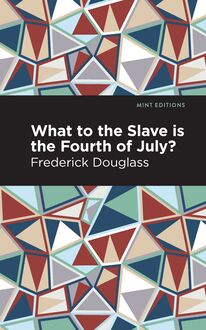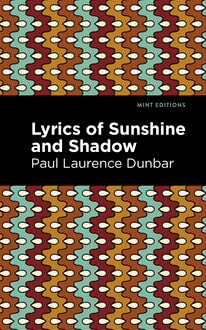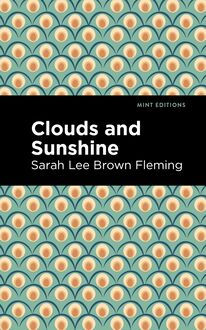-
 Univers
Univers
-
 Ebooks
Ebooks
-
 Livres audio
Livres audio
-
 Presse
Presse
-
 Podcasts
Podcasts
-
 BD
BD
-
 Documents
Documents
-
- Cours
- Révisions
- Ressources pédagogiques
- Sciences de l’éducation
- Manuels scolaires
- Langues
- Travaux de classe
- Annales de BEP
- Etudes supérieures
- Maternelle et primaire
- Fiches de lecture
- Orientation scolaire
- Méthodologie
- Corrigés de devoir
- Annales d’examens et concours
- Annales du bac
- Annales du brevet
- Rapports de stage
La lecture à portée de main
Vous pourrez modifier la taille du texte de cet ouvrage
Découvre YouScribe en t'inscrivant gratuitement
Je m'inscrisDécouvre YouScribe en t'inscrivant gratuitement
Je m'inscrisEn savoir plus
Vous pourrez modifier la taille du texte de cet ouvrage
En savoir plus

Description
Sowing and Reaping (1876) is a novel by Frances Ellen Watkins Harper. One of the first novels published by an African American woman, Sowing and Reaping is a story of friendship, romance, and tragedy that advocates for temperance nationwide. Originally published in serial format in the Christian Recorder, an important and historical periodical connected to the African Methodist Episcopal Church, Sowing and Reaping was rediscovered in the late twentieth century and has since been recognized as a groundbreaking work of fiction by the first African American woman to publish a novel.
Discussing the recent closure of John Andrews’ saloon, Paul Clifford and John Anderson reveal the starkly opposing natures which collide within their friendship. Although both consider themselves businessmen, Paul—whose father died young from alcoholism—always places morality ahead of opportunity while John, a pragmatist at heart, places his personal interests ahead of everything. Scolding his friend for not capitalizing on the bankruptcy of a local man, John presages the tragic events to come. As Paul falls in love with Belle through their mutual advocacy of temperance, John tries his hand as a saloon owner himself, indulging in and selling alcohol while turning a blind eye to his son’s increasing dependence on drinking. Written in straightforward prose, Sowing and Reaping is a politically conscious novel concerned with the cause of temperance in a time when families and communities were frequently torn apart by alcoholism.
With a beautifully designed cover and professionally typeset manuscript, this edition of Frances Ellen Watkins Harper’s Sowing and Reaping is a classic of African American literature reimagined for modern readers.
Sujets
Informations
| Publié par | Mint Editions |
| Date de parution | 26 janvier 2021 |
| Nombre de lectures | 0 |
| EAN13 | 9781513285184 |
| Langue | English |
| Poids de l'ouvrage | 1 Mo |
Informations légales : prix de location à la page 0,0300€. Cette information est donnée uniquement à titre indicatif conformément à la législation en vigueur.
Extrait
Sowing and Reaping
Frances Ellen Watkins Harper
Sowing and Reaping was first published in 1876.
This edition published by Mint Editions 2020.
ISBN 9781513280165 | E-ISBN 9781513285184
Published by Mint Editions®
minteditionbooks.com
Publishing Director: Jennifer Newens
Design & Production: Rachel Lopez Metzger
Project Manager: Micaela Clark
Typesetting: Westchester Publishing Services
C ONTENTS I II III IV V VI VII VIII IX X XI XII XIII XIV XV XVI XVII XVIII XIX XX XXI
I
“ I hear that John Andrews has given up his saloon; and a foolish thing it was. He was doing a splendid business. What could have induced him?”
“They say that his wife was bitterly opposed to the business. I don’t know, but I think it quite likely. She has never seemed happy since John has kept saloon.”
“Well, I would never let any woman lead me by the nose. I would let her know that as the living comes by me, the way of getting it is my affair, not hers, as long as she is well provided for.”
“All men are not alike, and I confess that I value the peace and happiness of my home more than anything else; and I would not like to engage in any business which I knew was a source of constant pain to my wife.”
“But, what right has a woman to complain, if she has every thing she wants. I would let her know pretty soon who holds the reins, if I had such an unreasonable creature to deal with. I think as much of my wife as any man, but I want her to know her place, and I know mine.”
“What do you call her place?”
“I call her place staying at home and attending to her own affairs. Were I a laboring man I would never want my wife to take in work. When a woman has too much on hand, something has to be neglected. Now I always furnish my wife with sufficient help and supply every want but how I get the living, and where I go, and what company I keep, is my own business, and I would not allow the best woman in the world to interfere. I have often heard women say that they did not care what their husbands did, so that they provided for them; and I think such conclusions are very sensible.”
“Well, John, I do not think so. I think a woman must be very selfish, if all she cares for her husband is, to have a good provider. I think her husband’s honor and welfare should be as dear to her as her own; and no true woman and wife can be indifferent to the moral welfare of her husband. Neither man nor woman can live by bread alone in the highest and best sense of the term.”
“Now Paul, don’t go to preaching. You have always got some moon struck theories, some wild, visionary and impracticable ideas, which would work first rate, if men were angels and earth a paradise. Now don’t be so serious, old fellow; but you know on this religion business, you and I always part company. You are always up in the clouds, while I am trying to invest in a few acres, or town lots of solid terra firma .”
“And would your hold on earthly possessions, be less firm because you looked beyond the seen to the unseen?”
“I think it would, if I let conscience interfere constantly, with every business transaction I undertook. Now last week you lost $500 fair and square, because you would not foreclose that mortgage on Smith’s property. I told you that ‘business is business,’ and that while I pitied the poor man, I would not have risked my money that way, but you said that conscience would not let you; that while other creditors were gathering like hungry vultures around the poor man, you would not join with them, and that you did not believe in striking a man when he is down. Now Paul, as a business man, if you want to succeed, you have got to look at business in a practical, common sense way. Smith is dead, and where is your money now?”
“Apparently lost; but the time may come when I shall feel that it was one of the best investments I ever made. Stranger things than that have happened. I confess that I felt the loss and it has somewhat cramped my business. Yet if it was to do over again, I don’t think that I would act differently, and when I believe that Smith’s death was hurried on by anxiety and business troubles, while I regret the loss of my money, I am thankful that I did not press my claim.”
“Sour grapes, but you are right to put the best face on matters.”
“No, if it were to do over again, I never would push a struggling man to the wall when he was making a desperate fight for his wife and little ones.”
“Well! Paul, we are both young men just commencing life, and my motto is to look out for Number 1, and you—”
“Oh! I believe in lending a helping hand.”
“So do I, when I can make every corner out to my advantage. I believe in every man looking out for himself.”
You will see by the dialogue, that the characters I here introduce are the antipodes of each other. They had both been pupils in the same school, and in after life, being engaged as grocers, they frequently met and renewed their acquaintance. They were both established in business, having passed the threshold of that important event, “Setting out in life.” As far as their outward life was concerned, they were acquaintances; but to each other’s inner life they were strangers. John Anderson has a fine robust constitution, good intellectual abilities, and superior business faculties. He is eager, keen and alert, and if there is one article of faith that moulds and colors all his life more than anything else, it is a firm and unfaltering belief in the “main chance.” He has made up his mind to be rich, and his highest ideal of existence may be expressed in four words— getting on in life . To this object, he is ready to sacrifice time, talent, energy and every faculty, which he possesses. Nay, he will go farther; he will spend honor, conscience and manhood, in an eager search for gold. He will change his heart into a ledger on which he will write tare and tret , loss and gain, exchange and barter, and he will succeed, as worldly men count success. He will add house to house; he will encompass the means of luxury; his purse will be plethoric but, oh, how poverty stricken his soul will be. Costly viands will please his taste, but unappeased hunger will gnaw at his soul. Amid the blasts of winter he will have the warmth of Calcutta in his home; and the health of the ocean and the breezes of the mountains shall fan his brow, amid the heats of summer, but there will be a coolness in his soul that no breath of summer can ever dispel; a fever in his spirit that no frozen confection can ever allay; he shall be rich in lands and houses, but fear of loss and a sense of poverty will poison the fountains of his life; and unless he repent, he shall go out into the eternities a pauper and a bankrupt.
Paul Clifford, whom we have also introduced to you, was the only son of a widow, whose young life had been overshadowed by the curse of intemperance. Her husband, a man of splendid abilities and magnificent culture, had fallen a victim to the wine cup. With true womanly devotion she had clung to him in the darkest hours, until death had broken his hold in life, and he was laid away the wreck of his former self in a drunkard’s grave. Gathering up the remains of what had been an ample fortune, she installed herself in an humble and unpretending home in the suburbs of the city of B., and there with loving solicitude she had watched over and superintended the education of her only son. He was a promising boy, full of life and vivacity, having inherited much of the careless joyousness of his father’s temperament; and although he was the light and joy of his home, yet his mother sometimes felt as if her heart was contracting with a spasm of agony, when she remembered that it was through that same geniality of disposition and wonderful fascination of manner, the tempter had woven his meshes for her husband, and that the qualities that made him so desirable at home, made him equally so to his jovial, careless, inexperienced companions. Fearful that the appetite for strong drink might have been transmitted to her child as a fatal legacy of sin, she sedulously endeavored to develop within him self control, feeling that the lack of it is a prolific cause of misery and crime, and she spared no pains to create within his mind a horror of intemperance, and when he was old enough to understand the nature of a vow, she knelt with him in earnest prayer, and pledging him to eternal enmity against everything that would intoxicate, whether fermented or distilled. In the morning she sowed the seed which she hoped would blossom in time, and bear fruit throughout eternity.
II
The Decision
“I hear Belle,” said Jeanette Roland addressing her cousin Belle Gordon, “that you have refused an excellent offer of marriage.”
“Who said so?”
“Aunt Emma.”
“I am very sorry that Ma told you, I think such things should be kept sacred from comment, and I think the woman is wanting in refinement and delicacy of feeling who makes the rejection of a lover a theme for conversation.”
“Now you dear little prude I had no idea that you would take it so seriously but Aunt Emma was so disappointed and spoke of the rejected suitor in such glowing terms, and said that you had sacrificed a splendid opportunity because of some squeamish notions on the subject of temperance, and so of course, my dear cousin, it was just like me to let my curiosity overstep the bounds of prudence, and inquire why you rejected Mr. Romaine.”
“Because I could not trust him.”
“Couldn’t trust him? Why Belle you are a greater enigma than ever. Why not?”
“Because I feel that the hands of a moderate drinker are not steady enough to hold my future happiness.”
“Was that all? Why I breathe again, we girls would have to refuse almost every young man in our set, were we to take that stand.”
“And suppose you were, would that be any greater misfortune than to be the wives of drunkards.”
“I don’t see the least danger. Ma has wine at her entertainments, and I have often handed it to young
-
 Univers
Univers
-
 Ebooks
Ebooks
-
 Livres audio
Livres audio
-
 Presse
Presse
-
 Podcasts
Podcasts
-
 BD
BD
-
 Documents
Documents
-
Jeunesse
-
Littérature
-
Ressources professionnelles
-
Santé et bien-être
-
Savoirs
-
Education
-
Loisirs et hobbies
-
Art, musique et cinéma
-
Actualité et débat de société
-
Jeunesse
-
Littérature
-
Ressources professionnelles
-
Santé et bien-être
-
Savoirs
-
Education
-
Loisirs et hobbies
-
Art, musique et cinéma
-
Actualité et débat de société
-
Actualités
-
Lifestyle
-
Presse jeunesse
-
Presse professionnelle
-
Pratique
-
Presse sportive
-
Presse internationale
-
Culture & Médias
-
Action et Aventures
-
Science-fiction et Fantasy
-
Société
-
Jeunesse
-
Littérature
-
Ressources professionnelles
-
Santé et bien-être
-
Savoirs
-
Education
-
Loisirs et hobbies
-
Art, musique et cinéma
-
Actualité et débat de société
- Cours
- Révisions
- Ressources pédagogiques
- Sciences de l’éducation
- Manuels scolaires
- Langues
- Travaux de classe
- Annales de BEP
- Etudes supérieures
- Maternelle et primaire
- Fiches de lecture
- Orientation scolaire
- Méthodologie
- Corrigés de devoir
- Annales d’examens et concours
- Annales du bac
- Annales du brevet
- Rapports de stage




















